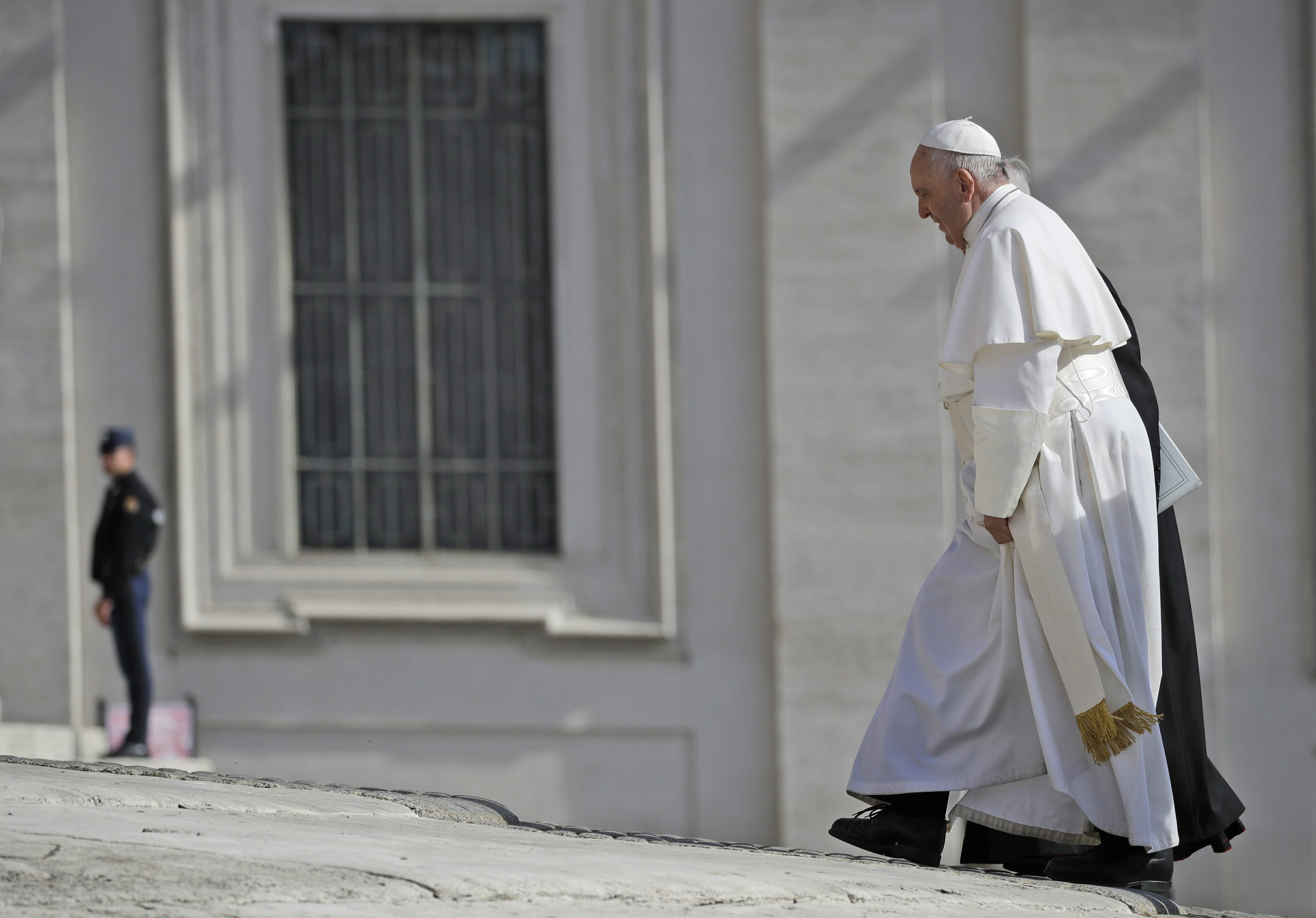
Pope prays with Roma, Sinti people, decries prejudice
VATICAN CITY (AP) — Pope Francis met and prayed Thursday with hundreds of people from Europe’s Roma and Sinti communities, telling them he suffers when he reads about abuse and prejudice directed at the minority groups.
Francis’ meeting came a day after protesters insulted the mayor of Rome for providing a 14-member Roma family a home in the city’s Casal Bruciato neighborhood. A far-right extremist threatened a Roma woman with rape at the protest.
Francis had a private meeting with the housed family later Thursday at the Basilica of St. John Lateran, the pope’s official seat as bishop of Rome.
“The pope wanted to express his closeness and solidarity with this family and the clearest condemnation of every form of hatred and violence,” Vatican spokesman Alessandro Gisotti said.
Other cases of verbal abuse and violence have been reported in Italy’s capital as municipal authorities try to place Roma people in public housing.
The Roma and Sinti are historically nomadic people also often known as Gypsies, though that term is deemed derogatory by some and is growing less common. The communities are increasingly settled in urban areas. Some have lived in Italy since the Middle Ages, while others are more recent arrivals from the former Yugoslavia and elsewhere.
“When I read in the papers something ugly, I will tell you the truth, I suffer,” Francis told the groups. “Today I read something ugly and I am suffering, because this is not civilized, it is not civilized.”
Members of the Roma community shared stories of racism and suffering with the pope. A 30-year-old Roma priest, Father Cristian Di Silvio, told the pontiff that “a Gypsy who becomes a priest always makes news.”
“When I spoke to my companions in the seminary, the first thing they asked me is if I lived in a trailer, if I was a beggar, and if my family stole wallets from people at Termini train station,” Di Silvio said, referring to Rome’s main train station.
Three Roma mothers described their living conditions to the pontiff.
“Some of us live in rented apartments, others in public housing, others in what are called ‘nomad camps,” which are nothing but slums, ghettos, in which, on the basis of ethnicity, our families are segregated by the city institutions,” said one woman identified only by her first name, Miriana.
The Western Journal has not reviewed this Associated Press story prior to publication. Therefore, it may contain editorial bias or may in some other way not meet our normal editorial standards. It is provided to our readers as a service from The Western Journal.
Truth and Accuracy
We are committed to truth and accuracy in all of our journalism. Read our editorial standards.
Advertise with The Western Journal and reach millions of highly engaged readers, while supporting our work. Advertise Today.












